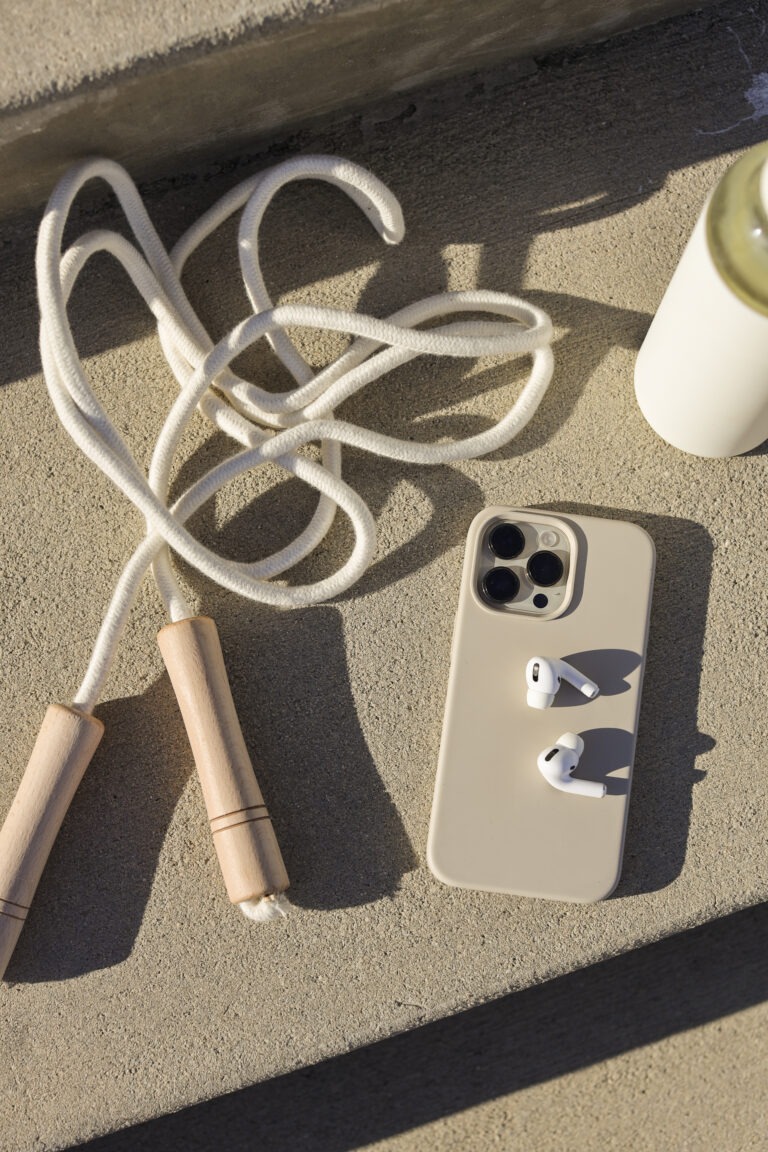A healthy confidence level can only lead to greater things in the world. True humility doesn’t come from feeling like nothing. It comes from knowing all your strengths and doing your part to bring them out into the world yet being humble in understanding that they come from your Creator.
The most important thing is that you’re ready to do the work. “The essence of The Confidence Class is to give practical, implementable ideas that the student can start applying to their life immediately,” Amanda Thum, founder of the self-esteem workshop, shares. “All it takes is willpower. Someone needs to want to be helped.”
Here, Amanda shares seven ways you can boost your own confidence and think and act your way into a better day-to-day life. Plus, if you find yourself slipping, you’ll have these tools in your back pocket to pull out at a moment’s notice.
1. Hug yourself.
“When I teach yoga, I always implement this into the practice,” Amanda says. “It doesn’t matter how weird you feel at first, because over time, it won’t feel that way. It will start to feel amazing.” She explains that you’re building a muscle of self-support. “Especially coming out of the pandemic when so many people were alone, it’s important to be able to get physical affection from yourself if you need it, when someone else isn’t there to give you a hug. It’s a really great self-soothing technique.”
2. Plant your feet firmly on the ground—literally.
If you’re feeling uncertain or not connected to your gut instinct, Amanda suggests standing with both feet firmly on the floor. You can be outside or inside, have shoes on or not—the location doesn’t matter, the action does. If you’re having a conversation where you feel a little shaky or just doing work from home, she insists it’s a really grounding technique. “Don’t sit, don’t cross your legs and don’t walk around,” she says. If you stand still for a few minutes and really feel grounded in you, it will affect everything you do moving forward.

3. Stabilize your breath.
Like planting your feet, calming your breathing can have strong grounding effects. “I like to say that the quality of your breath can tell you everything you need to know about the quality of your thoughts,” she explains. “When your thoughts are erratic, your breath is erratic. When you notice it, steady yourself and your body, and your thoughts will start to feel calmer, too.”
4. Create a healthy relationship with mirrors.
How many times do you look in a mirror and immediately find the flaw(s)? Amanda has a rule about mirrors. She says that you can only look in a mirror if you’re going to say something kind to yourself. “It’s important to redevelop our connection to looking at ourselves,” she says. “There’s obviously a lot more to confidence than the physical body, but because mirrors are everywhere and we’re always looking at our own faces, you’re confronted with this a lot. In actively changing the conversation, it’s an important way to cultivate a more positive self-talk practice.”
“Only look in a mirror if you’re going to say something kind to yourself.”
5. Start noticing your behavior.
“I believe we always know the place from which our behavior is coming,” Amanda says. “We might not want to admit it or be honest about it, but we do always know. Let’s say you’re on a work Zoom call and someone asks for your opinion on something and you’re unsure. Instead of acting unsure, you can answer confidently about your uncertainty. Maybe it’s, ‘I actually haven’t been here so long, so I don’t know so much about the project; I’m not sure I’m at liberty to speak about it.’ ‘I don’t know’ can actually be a very competent answer.”
So, in the above example, instead of just feeling unsure, realize where that uncertainty is coming from. If you’re feeling jealous of someone else, by being honest about that you can start to get to the core of the feeling instead of just acting out and saying something you might regret. This may take getting used to, and it’s okay if you don’t get it just right off the bat, but it’s a good first step.
6. Remember you’re seeking connection, not attention.
As Amanda referenced in her article here, adults as well as children need connection. Maybe you started an argument with your partner because they came home late. “You might feel bad about that, but it’s important to show yourself grace,” she says. “By taking a step back, you can see that, actually, you just missed them and then work to communicate that in a healthy way, instead of starting a fight.”
Of course, all of this comes with a healthy dose of vulnerability. “We’re scared of feeling vulnerable,” she explains. “But in those moments, we’re letting that fear take the reins instead of facing it head-on and being honest and real. It’s okay to say you feel scared.”
7. Work confidence like a muscle.
With all of this, it’s important to be kind to yourself about your progress. It’s not realistic to just do one thing and then think you’re good for life. Confidence is a muscle, so the more you work it, the more it will grow. “Even as the founder of The Confidence Class, I don’t wake up every day and check all the boxes,” she says. “I do the work every day. It’s uncomfortable and it’s hard, but it’s worth it.”
For more from Amanda, click here!









